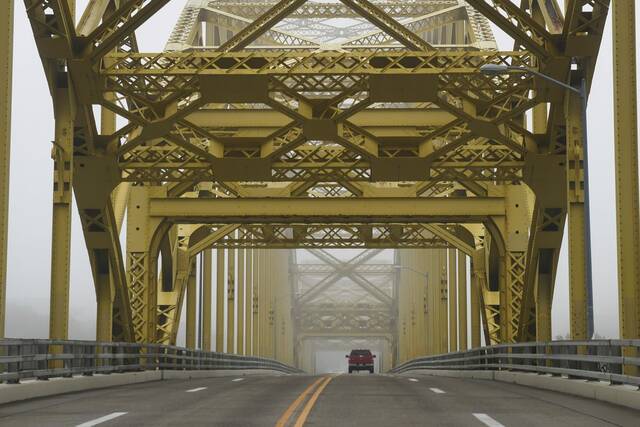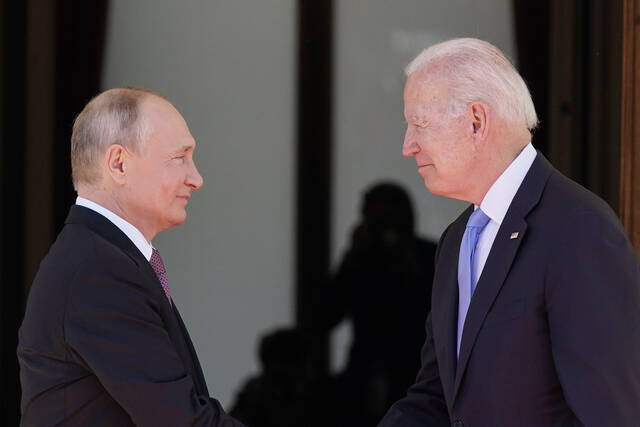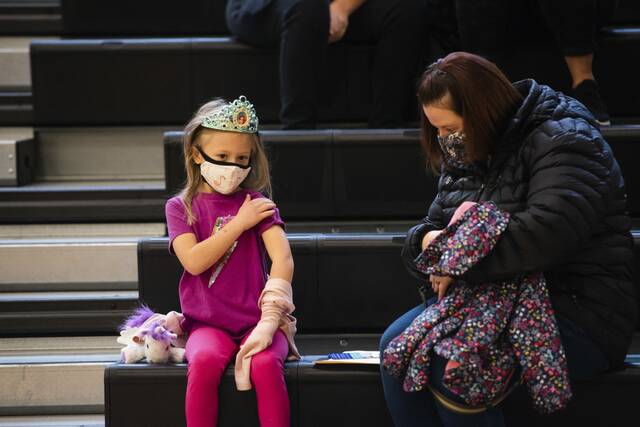There’s been a lot of talk lately about reimagining Appalachia, in part through a revived Civilian Conservation Corps (CCC). I agree that a CCC could be a great mechanism of change for all of the people of our region. I know this because, as executive director of the Pittsburgh Conservation Corps (popularly known as Landforce), I can point you to a network of organizations, just like mine, who are already proving the power of an updated CCC.
The original Civilian Conservation Corps employed 3 million people during the Great Depression. Participants earned a living while planting trees and building trails, cabins and infrastructure across America. We all continue to benefit from many of these infrastructure improvements today. A new CCC would inevitably do the same for us and future generations, and while the impact on Appalachia’s environmental quality and health would be enormous, I would like to make the case for what a new CCC, thoughtfully enacted, could do for the structure of our society.
We need jobs today just like we did in the 1930s. According to the U.S. Bureau of Labor Statistics, the unemployment rate in Allegheny and Westmoreland counties is 6.4%; in Beaver County, it’s 7.4%; and for Fayette County, it’s a whopping 9%. For women and people of color, this number is even higher. According to the Prison Policy Institute, unemployment rates for people returning from incarceration skyrocket to up to a shocking 27%, which is higher than the unemployment rate during the Great Depression.
From conversations I’ve had with returning citizens, one of their biggest stressors upon leaving jail is whether or not they will find someone willing to hire them and give them a chance. Without jobs, many may enter a cycle of recidivism, which means more tax dollars wind up subsidizing jail over jobs.
At Landforce we hire people who have been excluded from the larger workforce, and we work on conservation-based projects across Allegheny County — trail construction, habitat restoration, tree planting/tree care, garden bed installations, green infrastructure installation and maintenance, vacant lot improvements, you name it. And we pay up to $15/hour to our crew members.
But that’s only half of what we do. In order to ensure the highest success rate for the people who work with us, not just the physical environment we are working on, we put our people first.
For example, transitioning home from prison often involves a lot of complications, including uncertainty over housing, employment, culture change and successfully reentering the community. As we have seen time and time again, even the abundance of career options today can overwhelm, if all you’ve been used to for the last five, 10, 20 years is being told what to do and when to do it. We provide a host of trainings, including both soft skills and hard skills, as well as weekly individualized career coaching sessions, referrals to services we cannot provide in-house, and knowledgeable supervision in a team structure. We use a trauma-informed care approach that is imbued with respect for the people who work with us to make sure we can support people as they transition into their next opportunities.
And they do transition — typically 92% of the participants who complete their season with us move immediately into other jobs and one year later, 91% of those responding are still employed.
In order for private market employers to embrace people who have been traditionally excluded from the workforce as valuable employees, we need to act intentionally. A successful CCC must simultaneously uplift the skills, passion and ability of the people who will work in the CCC while also providing them additional trainings and skill building, so they can do even better for themselves and their families.
Landforce is based in Pittsburgh, and my experience speaks to the role that a CCC could play here for communities that have been systematically pushed out of good jobs. We often hear discussions about the rural versus urban divide, yet a CCC is something that can and should unite us all. Coal country and coalfield communities have been hit hard by the changing economy, by the opioid crisis and by the pandemic. Reviving the CCC provides a once-in-a-lifetime public works project to jump-start local economies, both rural and urban, while addressing the causes and effects of our impending climate crisis, and employing those who have been left, or pushed, out of the job market.
Sen. Bob Casey and Reps. Conor Lamb, Susan Wild and Dwight Evans have been champions of a revived Civilian Conservation Corps, and now it appears a revived CCC is within reach. The White House just revealed the Build Back Better framework. The act includes $105 billion of “Resilience Investments” to address extreme weather events, legacy pollution in communities and a “Civilian Climate Corps.”
We need to make sure the CCC stays intact, that it is designed to ensure that the people who do the work will ultimately thrive, and that resources flow to both rural and urban areas. If our elected leaders do so, the CCC could ultimately build a vital bridge to the 21st-century economy.
Ilyssa Manspeizer is executive director of Landforce.








